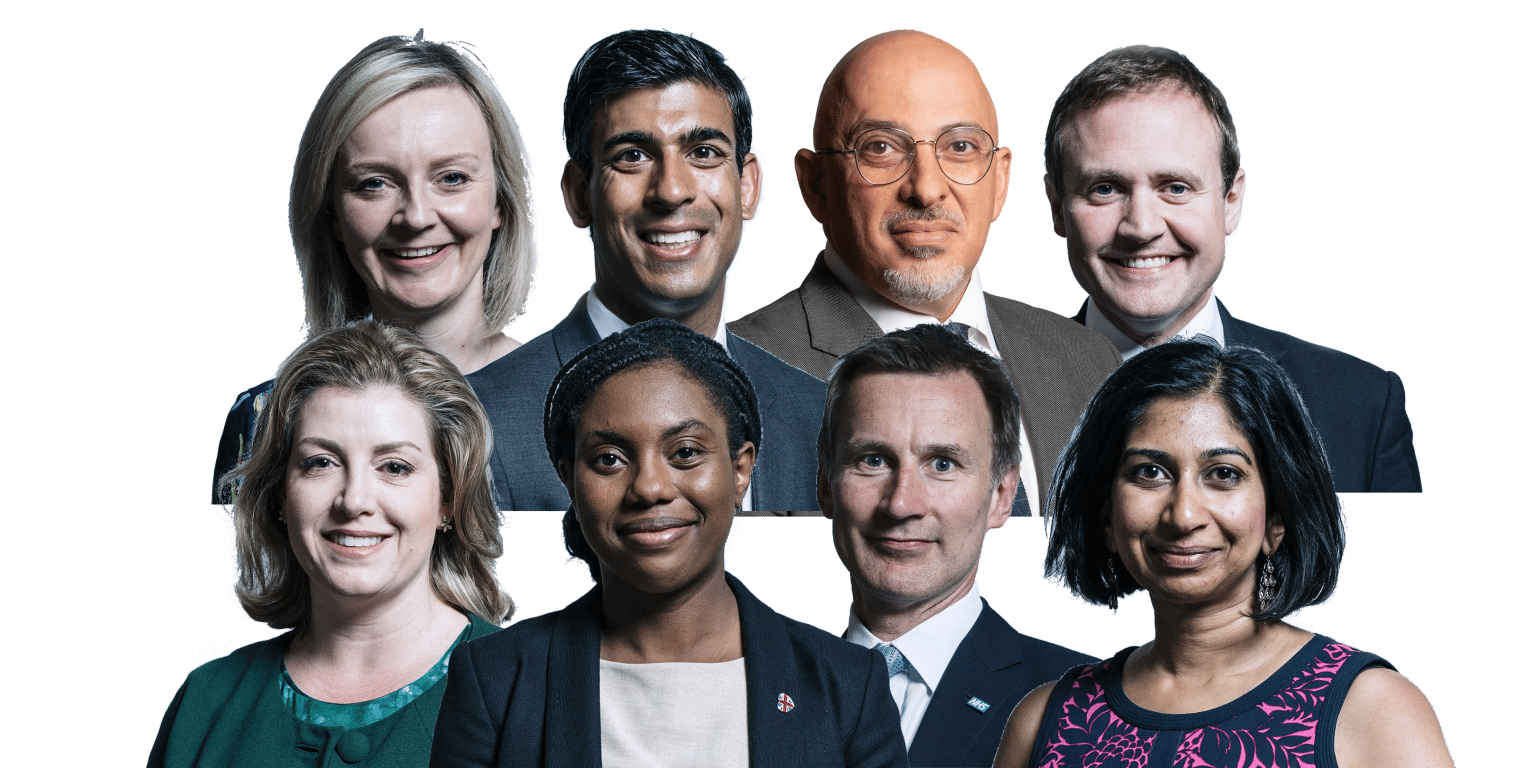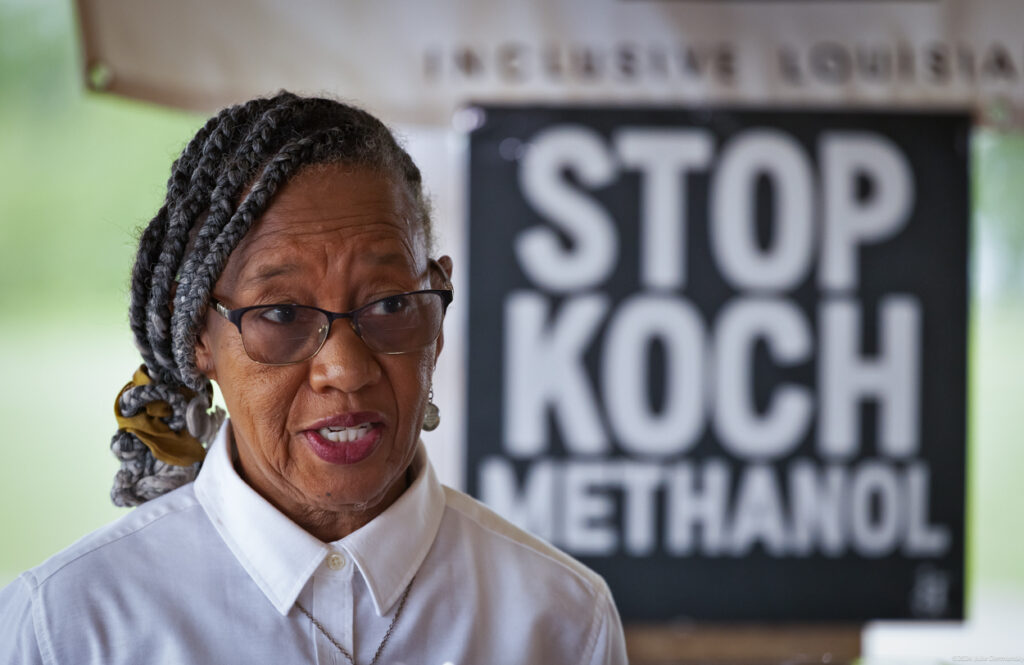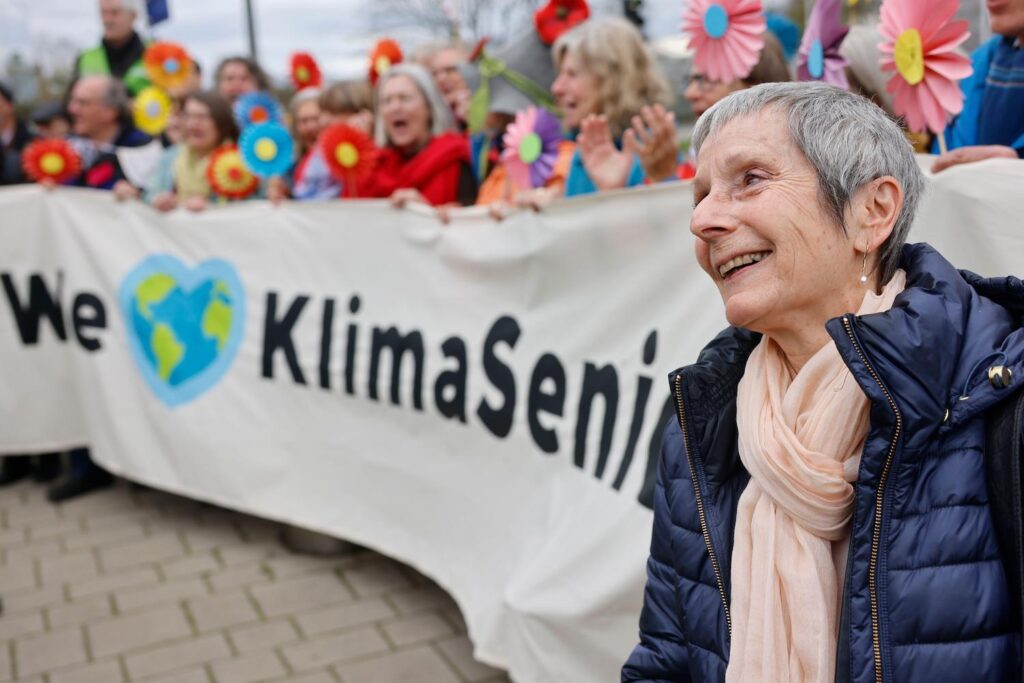The sprint for a new prime minister marks the latest act in the UK’s political drama.
All of the remaining contenders were elected in 2019 on the Conservatives’ manifesto pledge to “lead the global fight against climate change by delivering on our world-leading target of Net Zero greenhouse gas emissions by 2050”.
Yet several appear to be exploiting fears over energy prices to push climate “delay” narratives that blame net zero policies for the cost of living crisis. Others have failed to mention climate at all.
That climate action is taking a back seat suggests that the current contenders – many aligned with the ideological right of the party – may be failing to read their own membership.
Polling indicates that nearly a quarter of Tory party members surveyed think the government is “underreacting” on climate change, while 30 percent describe its actions as “about right”. Meanwhile, green Conservative MPs have warned that climate policies are overwhelmingly popular, and scrapping them would be “electoral suicide”.
Of course, the anti-net zero vigour of some MPs may be a tactical move – they might take a different approach once elected (and we’d like to think they would).
Starting with the staunchest critics of net zero, and then examining greener candidates, here’s our round-up of the Tory leadership hopefuls:
Suella Braverman
Attorney General
The Attorney General has been the most vocal opponent of climate action among the candidates, vowing to “suspend the all-consuming desire to achieve Net Zero by 2050”.
Writing for the Express, Braverman argued that the UK’s 2050 net zero target would equate to “net-zero growth” and would lead to the UK “going cap in hand to Putin for heating and power”. At a 1922 Committee hustings event this week, Braverman confirmed that she would push the UK’s net zero target back.
This stance marks a distinct shift from 2016, when she praised the Paris Agreement, telling MPs of the threat climate change poses to the environment and “economic prosperity”.
Six years on, her campaign is being run by the leading opponent of net zero in parliament – Steve Baker MP, a trustee of the UK’s most prominent climate denial group, the Global Warming Policy Foundation (GWPF), and deputy chair of the Net Zero Scrutiny Group (NZSG).
Baker spoke at a GWPF event last week, where he reportedly accused climate campaigners of “terrifying children” and likened their warnings to“child abuse”. This week, he re-launched libertarian pressure group Conservative Way Forward with funding from the chair of the GWPF’s campaign arm.
Baker has drawn attention to Braverman’s role in Brexit, tweeting on Monday that “it wouldn’t have happened without her”. Braverman chaired the European Research Group of MPs supporting a “hard Brexit” after Baker, and before Jacob Rees-Mogg, in 2018. DeSmog has previously reported on the strong overlap between the campaign for a “hard Brexit” and opposition to climate action.
Kemi Badenoch
Former Minister of State at the Department for Levelling Up, Housing and Communities and Minister for Equalities
A rising star on the right of the Conservative party, Badenoch has made no bones about her opposition to the government’s net zero targets. Her leadership bid is being backed by former levelling up secretary Michael Gove, who has praised her “no bulls**t” approach. Some climate watchers have been left scratching their heads, given Gove’s reputation as a fairly green figure within the party.
As recently as May Badenoch hailed the government for having “led the world in the fight against climate change with our COP26 presidency” and in September 2021 noted that the UK was the “first major economy to legislate to end our net contribution to climate change by 2050”.
However, the Brexit supporter has now come out vehemently against the UK’s net zero target, describing the policy as “unilateral economic disarmament” and the 2050 target as “arbitrary”. She told the Telegraph she “believe[s] in climate change” but said “there is a better way of going about these things”. Badenoch later told the Times that the UK must “increase the capacity of the electricity grid” to power electric vehicles, adding that her “issue isn’t that 2050 is the right or wrong target” but that “we need to change how we talk about it”.
At a 1922 Committee hustings event this week, Badenoch reportedly said she would “change [the] concept of [the] target to be more accountable” and have a “delivery plan”.
DeSmog this week revealed that Badenoch received a £1,000 donation from one of the few known funders of climate science denial in the UK, for a ticket to a Conservative party fundraiser last November. DeSmog had previously reported that the donor, Michael Hintze, an Australian hedge fund manager who has provided financial support to the Global Warming Policy Foundation, is set to be appointed to the House of Lords.
Liz Truss
Foreign Secretary
Liz Truss is a former environment secretary and vocal supporter of free market economics, and has said little about the climate or net zero in her campaign. When asked at a 1922 Committee hustings event this week, Truss said she would keep the UK’s 2050 net zero target.
Truss has close ties to the so-called Tufton Street network of libertarian, pro-Brexit think tanks and lobby groups, based on and around the Westminster road. She has spoken at multiple events organised by the Institute of Economic Affairs (IEA) and the Adam Smith Institute.
The IEA, whose “parliamentary wing” of MPs supportive of deregulation Truss set up soon after becoming an MP, has a long history of opposing government environmental policy and has taken funding from oil giant BP since the 1960s.
Following her appointment as international trade secretary, Truss tapped three employees of Tufton Street groups as advisors.
As environment secretary between 2014-2016 she cut subsidies for solar farms, calling them “a blight on the landscape”, and claimed they were harming food production.
Truss is one of the authors of an influential 2012 book by members of the Conservative Free Enterprise Group, Britannia Unchained, which argued for a low-tax, deregulated economy and took a swipe at “government-subsidised green technology”.
Truss’s ties to free market groups also extend across the Atlantic. During a trip to the United States in 2018 while she was chief secretary to the Treasury, Truss met with several Koch-funded libertarian think tanks and lobby groups with a history of climate science denial, including the Cato Institute, the American Enterprise Institute, and the Heritage Foundation.
Penny Mordaunt
Minister of State for Trade Policy
The former defence secretary and Brexit supporter officially launched her campaign on July 13, with a pledge to slash fuel duty and “capitalise” on leaving the EU.
Mordaunt did not otherwise refer to climate action or net zero targets during the address. However, writing in the Telegraph earlier this week, Mordaunt signalled her support for net zero, saying her Party’s plans for decarbonisation could help create three million green jobs by 2030 – though it was unclear how this would be achieved. At a 1922 Committee hustings event this week, Mordaunt confirmed that she would keep the UK’s 2050 net zero target.
Despite signs she backs the UK’s emissions reduction plans, Mordaunt has also received funding from a number of donors with links to the UK’s most prominent climate science denial group, the Global Warming Policy Foundation (GWPF), which campaigns against net zero policies.
Between 2019 and 2021, she received £20,000 from First Corporate Consultants, a management consultancy founded by Terence Mordaunt, GWPF’s then chair. It is unclear whether the two are related.
Ahead of the 2019 general election, Mordaunt received a £3,000 donation from hedge fund manager Michael Hintze, who has also funded the GWPF.
On Monday, Mordaunt welcomed the endorsement of motoring lobbyist Howard Cox of the FairFuelUK campaign, which is funded by the Road Haulage Association, and pledged to cut fuel duty by 50 percent. Cox is a climate science denier who runs an All-Party Parliamentary Group with Conservative MP Craig Mackinlay, chair of the Net Zero Scrutiny Group, which has extensive ties to the GWPF.
In her role as trade minister, Mordaunt was involved in a controversial trade deal with Australia which saw the UK government eliminate key language about climate policy, the environment, and concerns about deforestation and pesticide use.
Rishi Sunak
Former Chancellor of the Exchequer
The ex-Chancellor was the first MP to launch a leadership campaign, and is currently a frontrunner in the race. Despite some overtures to decarbonisation, Sunak did not materialise as a champion of the UK’s net zero targets while he was in charge of the budget.
Last year, Sunak faced criticism for blocking green policies required for decarbonisation, with campaigners accusing the Treasury of “fuelling the climate emergency” by watering down policies on infrastructure spending and home insulation, including scrapping the green homes grant.
Sunak was also criticised for making no mention of climate change in his address to the 2021 Conservative Party conference. He also came under fire for decisions in the 2021 autumn budget – including freezing fuel duty for a 12th year and planning to expand the road network.
At the COP26 climate summit in Glasgow late last year, Sunak said he would make the UK the “world’s first net zero financial centre” by making businesses publish “a clear, deliverable plan setting out how they will decarbonise and transition to net zero with an independent task force”.
In May, Sunak announced a £5 billion windfall tax on oil and gas companies. Analysts and campaigners criticised the move however, calling it a “missed opportunity” for climate and warning generous tax breaks would further incentivise oil and gas development.
At a 1922 Committee hustings event this week, Sunak said he would keep the UK’s 2050 net zero target.
Nadhim Zahawi
Chancellor of the Exchequer; former Secretary of State for Education
Nadhim Zahawi, the chancellor of the exchequer and former education secretary, has had a lucrative career in the oil and gas industry alongside his MP duties.
Zahawi, who has pledged to temporarily scrap green energy levies if he becomes prime minister, earned £1.3 million as chief strategy officer of Gulf Keystone Petroleum, an Iraqi Kurdistan-based company, which included a £285,000 “settlement payment” made after he became a junior education minister in 2018.
Before being employed by Gulf Keystone in 2015, Zahawi advised the London-headquartered, Nigeria-focused oil company Afren. Two Afren executives were sentenced to a total of 30 years in jail in 2018 following a Serious Fraud Office investigation. Zahawi was not accused of any wrongdoing.
A joint investigation by the Guardian and DeSmog in 2019 noted that Zahawi had also been advising Talisman, a major Canadian oil sands producer, through his business advisory company Zahawi & Zahawi, and held shares in Genel Energy, an Anglo-Turkish oil and gas firm. The Chancellor resigned from Zahawi & Zahawi in January 2018.
Zahawi told the Telegraph on Monday that he is “committed to achieving net zero by 2050” but that “we cannot leave struggling families to pick up the bill for net zero”, and that reaching the 2050 target “should never hinder the UK’s economic growth, nor deter investment”.
In a 2021 parliamentary reading of the Skills and Post-16 Education Bill, Zahawi claimed that the Bill would support the development of skills to “support our path to net zero” which is “not only good for the planet, but good for business”. He drew on Prime Minister Boris Johnson’s statement: “When it comes to tackling climate change, words without action, without deeds are absolutely pointless.”
That said, Zahawi won praise from the environmental sector for introducing a climate change strategy for schools and launching a Natural History GCSE exam.
Tom Tugendhat
Chair of Foreign Affairs Committee
Tugendhat is one of the few leadership candidates to defend the UK’s net zero target, and has acknowledged that climate change is “one of the greatest challenges we face”. However, at a 1922 Committee hustings event on Wednesday, Tugendhat reportedly said he would push the 2050 net zero target back (but told reporters the next day that he sees net zero as a “benefit”, not just a “cost”).
Tugendhat has also announced he will slash fuel duty – widely seen as a regressive measure when nearly a quarter of all the UK’s emissions come from transport. Tugendhat said that if elected he would cut fuel duty “by 10p a litre” and “introduce an energy resilience plan to ensure that the UK has dependable power produced at home or sourced from trusted allies”.
The former British Army officer told the Telegraph that a government led by him would keep the net zero target on the grounds of energy security – in contrast to other candidates, who have used “energy security” as an argument to reject or water down climate action.
“Net zero isn’t just about climate change anymore, but shielding ourselves from Russia’s weaponisation of its position in energy markets,” he said, adding that a “sluggish” approach to decarbonising would “hand the economic and technological advances of the future to our competitors, and compromise growth industries in the UK’s industrial heartlands”.
Tugendhat is a member of the Conservative Environment Network (CEN) and is also on the advisory board of Onward, a Tory think tank which supports net zero and decarbonising the economy, and in April published research that found ditching net zero would cost the Tories 1.3 million votes.
Jeremy Hunt
Chair of the Health and Social Care Select Committee, former Health Secretary
Hunt is no stranger to Westminster’s front benches, having served as foreign secretary, health secretary and culture secretary since 2010. He also made it to the final two Tory leadership candidates in 2019, but lost out to Boris Johnson in a landslide vote.
Hunt’s latest leadership bid was launched with a lengthy interview in the Telegraph, but it failed to include any mention of climate, net zero targets or the environment.
However, earlier this year Hunt joined pro net-zero MPs in the Conservative Environment Network (CEN), stating that Russia’s invasion of Ukraine made it “vital” to decarbonise the UK’s economy by 2050. He said it was essential to develop homegrown clean energy “to lower people’s bills, strengthen our energy security and avoid the worst consequences of climate change”.
Despite this nod to net zero, Hunt has said that if elected, he would pick Esther McVey, a member of the Net Zero Scrutiny Group and a consistent critic of environmental action, as his deputy prime minister. In an August 2021 segment on GB News, where she is a host, McVey said that the UK must not “go green and red at the same time”, and argued that while she cares about the environment, she was concerned that green policies could “bankrupt the country”.
Ahead of the 2019 leadership campaign, Hunt received a £25,000 donation from Terence Mordaunt through First Corporate Shipping, the trading name of Bristol Port, which Mordaunt co-owns with Sir David Ord. Mordaunt, a director of the GWPF’s campaign arm, also donated £25,000 to Johnson’s leadership bid.
Updated at 3.30pm BST 14/7/22 to include candidates’ net zero comments at the 1922 Committee hustings and Kemi Badenoch’s clarification in the Times, as well as to reorder the candidates based on this.
Subscribe to our newsletter
Stay up to date with DeSmog news and alerts









